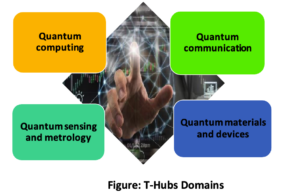8 July 2023 : Daily Current Affairs
DAILY CURRENT AFFAIRS
8-July-2023
Daily Current Affairs For UPSC ,Daily Current affairs of The hIndu and Indian Express.
1. THE ‘BRAIN-EATING AMOEBA’ THAT HAS KILLED A TEENAGER IN KERALA
Syllabus – GS III
Recent Context – A 15-year-old boy in Kerala’s Alappuzha district has died due to a rare infection caused by Naegleria fowleri or “brain-eating amoeba.
Naegleria fowleri
- The single-cell organism can be seen only under a microscope and is found in warm freshwater environments such as lakes, rivers, and springs.
- It survives on bacteria in the sediment in lakes and rivers. In very rare cases, it may be found even in swimming pools and water bodies in entertainment parks, especially if they are poorly maintained and not well-chlorinated.
- Therefore, it cannot survive in saline conditions and is not found in seawater.
Infection in humans
- The amoeba enters the body through the nose and travels to the brain, and diving or jumping into a river or lake can force water up the nose.
- The infection leads to a severe and usually fatal brain infection known as primary amoebic meningoencephalitis (PAM).
- Although the amoeba is vulnerable in its maturing or trophozoite phase, as a cyst, it becomes resistant to its environment.
- Unlike trophozoites, which are killed rapidly by refrigeration, cysts can survive even extreme cold.
Prevention, treatment
- The infection does not spread from person to person.
- Preventive measures such as avoiding warm freshwater bodies within adequate chlorination, using nose clips, and using sterile water for nasal cleansing rituals can help reduce the risk of contracting Naegleria fowleri infection.
- The amoeba causes inflammation and destruction of brain tissue. Symptoms usually appear within a week of infection, including severe headache, fever, nausea, vomiting, stiff neck, confusion, seizures, and hallucinations.
- As the infection progresses, the patient can slip into a coma and ultimately die.
- The US CDC recommends treatment with a combination of drugs that often includes amphotericin B, azithromycin, fluconazole, rifampin, miltefosine, and dexamethasone.
- Miltefosine, the newest of these drugs, has been shown to kill Naegleria fowleri in the laboratory and has been used to treat three survivors.
2. CLUSTER MUNITIONS
Syllabus – GS II, GS III
Recent Context – The US has decided to send cluster munitions to Ukraine to help its military push back Russian forces entrenched along the front lines.
What are cluster munitions?
- A cluster munition is a bomb that opens in the air and releases smaller “bomblets” across a wide area.
- The bomblets are designed to take out tanks, equipment, and troops, hitting multiple targets at a time.
- The munitions are launched by the same artillery weapons that the US and allies have already provided to Ukraine for the war — such as howitzers— and the type of cluster munition that the US is planning to send is based on a common 155 mm shell that is already widely in use across the battlefield.
- In previous conflicts, cluster munitions have had a high dud rate, meaning thousands of the smaller unexploded bomblets remained behind and killed and maimed people decades later.
- The US last used its cluster munitions in battle in Iraq in 2003 and decided not to continue using them as the conflict shifted to more urban environments with more dense civilian populations.
Is using them a war crime?
- Using cluster bombs is not a violation of international law, but using them against civilians can be a violation.
- As in any strike, determining a war crime requires looking at whether the target was legitimate and if precautions were taken to avoid civilian casualties.
- A convention that bans the use of cluster bombs has been joined by approx 120 countries, which agreed not to use, produce, stockpile or transfer the weapons and to clear them after they’ve been used. The US, Russia and Ukraine haven’t signed on.
3. Defamation case: Gujarat HC refuses relief to Rahul.
Topic: GS2 – Indian Polity.
What’s in the news?
- The Gujarat High Court has declined to stay the conviction of former Congress president Rahul Gandhi in a criminal defamation case.
- Gandhi was sentenced to two years in jail by a Surat court for making defamatory remarks against Prime Minister Narendra Modi during a campaign rally for the 2019 Lok Sabha election.
What is defamation and legal provisions in India:
Defamation refers to the act of making false statements about someone that harm their reputation. In India, defamation is both a civil wrong and a criminal offense. The legal provisions for defamation in India are primarily governed by the Indian Penal Code (IPC) and the Code of Criminal Procedure (CrPC).
- Criminal Defamation: Section 499 of the IPC defines defamation as an offense. According to this section, defamation is committed when a person makes or publishes a statement that harms the reputation of another person, either orally or in writing, with the intention to harm or knowing that it could harm the reputation. The statement must be false, and it must lower the reputation of the person in the eyes of others. Section 500 of the IPC provides the punishment for criminal defamation, which can include imprisonment for up to two years, a fine, or both.
- Civil Defamation: Apart from criminal defamation, civil defamation allows individuals to seek compensation for harm caused to their reputation. The injured party can file a civil suit seeking damages from the person responsible for the defamatory statement. The burden of proof lies with the plaintiff, who must prove that the statement was false and caused damage to their reputation.
- Exceptions and Defenses: Indian law recognizes certain defenses and exceptions to defamation. These include:
Truth: If the statement made is true, it generally serves as a defense against defamation. - Public Interest: Statements made in the public interest, such as those related to public officials or matters of public concern, may be protected.
- Fair Comment: Honest opinions or criticisms based on true facts may be considered fair comment and not defamation.
- Privilege: Statements made by lawmakers during legislative proceedings, by judges in court proceedings, or by government officials in their official capacity may be protected by privilege.
- Procedure: The procedure for filing a defamation case in India involves filing a complaint or a private criminal complaint in the appropriate court. In a civil defamation case, the injured party must file a civil suit seeking damages. In both criminal and civil cases, the parties must present evidence and arguments to support their claims or defenses.
Source: The Hindu, 8 July 2023, page 1
4. Govt. to share PM Gati Shakti data
Topic: GS3 – Indian economy.
More about the news:
- The Indian government is developing a mechanism to share data with industry and potential investors through the PM Gati Shakti platform.
- The Network Planning Group (NPG) under the platform has evaluated and facilitated 85 large central infrastructure projects worth nearly ₹5.4 lakh crore.
- The NPG recently evaluated five national highway projects worth ₹15,600 crore, including highways in Maharashtra, a ring road in Kanpur, and a tunnel project in Mizoram.
- The NPG also discussed disaster risk mitigation measures for Uttarakhand’s Garhwal region, including road stretches prone to landslides and sinking zones.
- The government is working on consensus among ministries regarding data sharing on the Gati Shakti portal, considering compatibility with geospatial data policies and issues related to data protection and privacy.
- No specific time frame was mentioned for when the portal may be opened up to investors and stakeholders outside the government.
Source: The Hindu, 8 July 2023, page 12
5. McDonald’s stores put tomato off the menu amid price rise.
Topic: GS3 – Indian agriculture.
Context:
- McDonald’s in the northern and eastern parts of India has temporarily stopped using tomatoes in its food preparations due to non-availability of quality products.
- The price of tomatoes has surged up to ₹200 per kg, leading to supply constraints for McDonald’
Reasons for frequent rise in prices of such agriculture commodities:
- Seasonal Factors: Perishable agricultural commodities often experience price fluctuations due to seasonal variations in supply. Weather conditions, such as droughts, floods, or extreme temperatures, can affect crop yields and cause shortages, leading to higher prices.
- Demand and Supply Imbalance: Fluctuations in demand and supply can impact prices. If the demand for a particular perishable commodity increases significantly while the supply remains limited, prices tend to rise. Conversely, if supply exceeds demand, prices may decrease.
- Transportation and Logistics: Perishable commodities require efficient transportation and storage facilities to maintain their freshness and quality. Any disruptions in transportation, such as roadblocks, strikes, or logistical challenges, can lead to delays and spoilage, reducing the available supply and driving prices up.
- Post-Harvest Losses: Perishable commodities are prone to spoilage if not handled properly after harvest. Inadequate storage, inefficient handling practices, and lack of infrastructure can result in post-harvest losses, reducing the available supply and contributing to higher prices.
- Market Intermediaries: The involvement of multiple intermediaries, such as wholesalers, distributors, and retailers, in the supply chain can add to the final cost of perishable commodities. Each intermediary adds their margin, which can increase the overall price for consumers.
- Input Costs: Rising costs of inputs such as fertilizers, pesticides, labor, and energy can impact the production and supply of perishable commodities. If input costs increase, farmers may reduce their production or pass on the increased costs to consumers through higher prices.
- Export and Import Factors: International trade and fluctuations in exchange rates can affect the availability and prices of perishable commodities. Export restrictions, import duties, and changes in global demand can impact domestic prices.
- Market Speculation: Speculative activities in commodity markets can influence prices. Traders and investors who anticipate price movements may buy or sell contracts, which can create price volatility in the market.
Way Forward:
- Enhancing Agricultural Infrastructure: Improving storage facilities, transportation networks, and cold chain infrastructure can minimize post-harvest losses and ensure efficient supply chains. This would help maintain the quality and availability of perishable commodities, stabilizing prices.
- Promoting Sustainable Farming Practices: Encouraging farmers to adopt sustainable agriculture practices can enhance productivity and reduce production costs. This can be achieved through the promotion of organic farming, efficient water management, and the use of advanced technologies for pest control and crop management.
- Strengthening Market Linkages: Facilitating direct farmer-consumer linkages through farmer’s markets, community-supported agriculture, or online platforms can eliminate unnecessary intermediaries and reduce price mark-ups along the supply chain. This can provide farmers with better returns and consumers with fresher produce at reasonable prices.
- Investing in Research and Development: Increased investment in agricultural research and development can lead to the development of high-yielding and climate-resilient crop varieties. This would help mitigate the impact of adverse weather conditions on crop yields and stabilize prices.
- Promoting Financial Inclusion for Farmers: Providing farmers with access to affordable credit, insurance schemes, and risk management tools can help them cope with price volatility and mitigate the financial risks associated with perishable agriculture commodities.
- Strengthening Market Intelligence: Establishing robust market information systems that provide real-time data on production, demand, and prices can help farmers and policymakers make informed decisions. This information can enable better market planning and intervention measures during periods of price fluctuations.
- Promoting Value Addition and Diversification: Encouraging farmers to engage in value-added activities such as processing, packaging, and branding can help reduce post-harvest losses, increase shelf life, and create new market opportunities. Diversification into non-perishable or value-added products can also provide farmers with alternative income sources and reduce their reliance on perishable commodities.
- Government Interventions: Governments can implement measures like price stabilization mechanisms, minimum support prices, and direct procurement from farmers to ensure fair prices and protect them from market volatility.
Source: The Hindu, 8 July 2023, page 10
For Enquiry

8 July 2023 : Daily Current Affairs

8 July 2023 : Indian Express

Science Reporter June 2023

5 July 2023 : Indian Express

5 July 2023 : The Hindu Editorial

5 July June 2023 : PIB

5 July 2023 : Daily Quiz

5 July 2023 : Daily Current Affairs

4 July 2023 : Indian Express

4 July June 2023 : PIB
Daily Current Affairs 8 July 2023 : Daily Current Affairs DAILY CURRENT AFFAIRS
8-July-2023
Daily Current Affairs For UPSC ,Daily Current affairs of The hIndu…
Indian Express 8 July 2023 : Indian Express Indian Express
8-July–2023
The Indian Express, CSE candidates can stay informed about current…
Science Reporter Science Reporter June 2023 Article 1: National Quantum Mission: A Boost to India’s Quantum Endeavours
Recently, National Quantum…
Indian Express 5 July 2023 : Indian Express Indian Express
5-July–2023
The Indian Express, CSE candidates can stay informed about current…
The Hindu 5 July 2023 : The Hindu Editorial The Hindu Editorial
5-July-2023
Daily Current Affairs For UPSC ,The Hindu Editorial Summary
Facebook-f
Twitter
Youtube
1. A…
PIB 5 July June 2023 : PIB PRESS INFORMATION BUREAU
5-July-2023
Daily Current Affairs For UPSC ,The PIB ( Press Information Bureau…
Daily Quiz 5 July 2023 : Daily Quiz 5 july 2023 : Daily Quiz…
Daily Current Affairs 5 July 2023 : Daily Current Affairs DAILY CURRENT AFFAIRS
5-July-2023
Daily Current Affairs For UPSC ,Daily Current affairs of The hIndu…
Indian Express 4 July 2023 : Indian Express Indian Express
4-July–2023
The Indian Express, CSE candidates can stay informed about current…
PIB 4 July June 2023 : PIB PRESS INFORMATION BUREAU
4-July-2023
Daily Current Affairs For UPSC ,The PIB ( Press Information Bureau…



